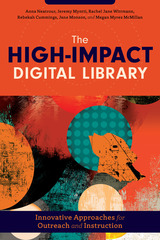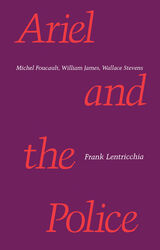
In Ariel and the Police, Frank Lentricchia searches through the totalizing desires for power that have built and help to maintain tangible and intangible structures of confinement and purification within, and sometimes as, the house of modernism. And what he finds, in his lyrical effort to redeem the subject for history, is that someone lives there, slyly, sometimes even playfully defiant.
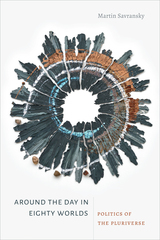

In 1865, twenty-three-year-old William James began his studies at the Harvard Medical School. When he learned that one of his most esteemed professors, Louis Agassiz, then director of the recently established Museum of Comparative Zoology, was preparing a research expedition to Brazil, James offered his services as a voluntary collector. Over the course of a year, James kept a diary, wrote letters to his family, and sketched the plants, animals, and people he observed. During this journey, James spent time primarily in Rio de Janeiro, Belem, and Manaus, and along the rivers and tributaries of the Amazon Basin.
This volume is a critical, bilingual (English–Portuguese) edition of William James’s diaries and letters and also includes reproductions of his drawings. This original material belongs to the Houghton Archives at Harvard University and is of great interest to both William James scholars and Brazilian studies experts.

Pragmatism emerged as a characteristically American response to an inheritance of British empiricism.
Presenting a radical reconception of the nature of experience, pragmatism represents a belief that ideas are not merely to be contemplated but must be put into action, tested and refined through experience. At the same time, the American pragmatists argued for an emphasis on human community that would offset the deep-seated American bias in favor of individualism. Far from being a relic of the past, pragmatism offers a dynamic and substantive approach to questions of human conduct, social values, scientific inquiry, religious belief, and aesthetic experience that lie at the center of contemporary life. This volume is an invaluable introduction to a school of thought that remains vital, instructive, and provocative.
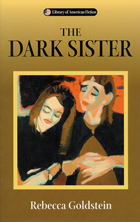
If you like the fiction of Henry James, the psychology of his brother William, and have a taste for Gothic mysteries you will enjoy The Dark Sister. The novel is a curious mixture of the Victorian repressiveness about sex, intricate stories within stories, and Jewish humor.
With a new afterword

This generous omnium-gatherum brings together all the writings William James published that have not appeared in previous volumes of this definitive edition of his works. Miscellaneous and diverse though the pieces are, they are unified by James's style and personality, which shine through even the slightest of them.
The volume includes 25 essays, 44 letters to the editor commenting on sundry topics, and 113 reviews of a wide range of works in English, French, German, and Italian. Twenty-three of the items are not recorded in any bibliography of James's writings. Two of the new discoveries are of particular interest: dating from 1865, when he was still a medical student, they are James's earliest known publications and give his first published views on Darwinian biology, which was to affect profoundly his own work in philosophy and psychology. Among his reviews are one of "Ueber den psychischen Mechanismus hysterischer Phäomene," by Josef Breuer and Sigmund Freud, published a year after the first appearance of that historically famous essay, and showing the breadth of James's interests, reviews of George Santayana's Sense of Beauty (1897) and Bernard Berenson's Florentine Painters of the Renaissance (1896).

Essays in Philosophy brings together twenty-one essays, reviews, and occasional pieces published by James between 1876 and 1910. They range in subject from a concern with the teaching of philosophy and appraisals of philosophers to analyses of important problems.
Several of the essays, like "The Sentiment of Rationality" and "The Knowing of Things Together," are of particular significance in the development of the views of James's later works. All of them, as John McDermott says in his Introduction, are in a style that is "engaging and personal...witty, acerbic, compassionate, and polemical." Whether he is writing an article for the Nation of a definition of "Experience" for Baldwin's Dictionary or "The Mad Absolute" for the Journal of Philosophy, James is always unmistakably himself, and always readable.

The more than fifty articles, essays, and reviews in this volume, collected here for the first time, were published by William James over a span of some twenty-five years. The record of a sustained interest in phenomena of a highly controversial nature, they make it amply clear that James's work in psychical research was not an eccentric hobby but a serious and sympathetic concern. James was broad-minded in his approach but tough-minded in his demand that investigations be conducted in rigorous scientific terms. He hoped his study of psychic phenomena would strengthen the philosophy of an open-ended, pluralistic universe that he was formulating during the same period, and he looked forward to the new horizons for human experience that a successful outcome of his research would create.
Robert A. McDermott, in his Introduction, discusses the relation of these essays to James's other work in philosophy, psychology, and religion.

The twenty-nine articles, essays, and reviews in this volume, collected here for the first time, were published by William James over a long span of years, from 1878 (twelve years prior to The Principles of Psychology) to 1906. Some are theoretical; others examine specific psychological phenomena or report the results of experiments James had conducted.
Written for the most part for a scholarly rather than a popular audience, they exhibit James's characteristic lucidity and persuasiveness, and they reveal the roots and development of his view on a wide range of psychological issues. As William R. Woodward notes in his Introduction, these essays "bring the reader closer to James's sources, thereby illuminating his indebtedness to tradition as well as his creative departure from it."


Essays in Religion and Morality brings together a dozen papers of varying length to these two themes so crucial to the life and thought of William James. Reflections on the two subjects permeate, first, James's presentation of his father's Literary Remains; second, his writings on human immortality and the relation between reason and faith; third, his two memorial pieces, one on Robert Gould Shaw and the other on Emerson; fourth, his consideration of the energies and powers of human life; and last, his writings on the possibilities of peace, especially as found in his famous essay "The Moral Equivalent of War."
These speeches and essays were written over a period of twenty-four years. The fact that James did not collect and publish them himself in a single volume does not reflect on their intrinsic worth or on their importance in James's philosophical work, since they include some of the best known and most influential of his writings. All the essays, throughout their varied subject matter, are consistently and characteristically Jamesian in the freshness of their attack on the problems and failings of humankind and in their steady faith in human powers.
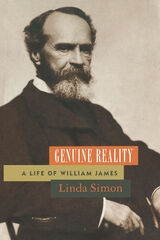
"William James . . . has never seemed so vulnerably human as in Linda Simon's biography. . . . [S]he vivifies James in such a way that his life and thought come freshly alive for the modern reader."—David S. Reynolds, New York Times Book Review
"Superb. . . . Genuine Reality is recommended reading for all soul-searchers."—George Gurley, Chicago Tribune
"Ms. Simon . . . has provided an ideal pathway for James's striding. . . . [Y]ou become engaged in his struggles as if they were your own."—Christopher Lehmann-Haupt, New York Times
"[A]n excellent narrative biography at once sensitively told and lucidly written."—John Patrick Diggins, Wall Street Journal
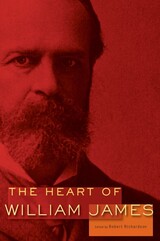
On the one hundredth anniversary of the death of William James, Robert Richardson, author of the magisterial William James: In the Maelstrom of American Modernism, assembles a wide-ranging selection of essays and writings that reveal the evolution of James’s thought over time, especially as it was continually being shaped by the converging influences of psychology, philosophy, and religion throughout his life.
Proceeding chronologically, the volume begins with “What Is an Emotion,” James’s early, notable, and still controversial argument that many of our emotions follow from (rather than cause) physical or physiological reactions. The book concludes with “The Moral Equivalent of War,” one of the greatest anti-war pieces ever written, perhaps even more relevant now than when it was first published. In between, in essays on “The Dilemma of Determinism,” “The Hidden Self,” “Habit,” and “The Will”; in chapters from The Principles of Psychology and The Varieties of Religious Experience; and in such pieces as “On a Certain Blindness in Human Beings,” “What Makes a Life Significant,” and “Philosophical Conceptions and Practical Results,” we witness the evolution of James’s philosophical thinking, his pragmatism, and his radical empiricism. Throughout, Richardson’s deeply informed introductions place James’s work in its proper biographical, historical, and philosophical context.
In essay after essay, James calls us to live a fuller, richer, better life, to seek out and use our best energies and sympathies. As every day is the day of creation and judgment, so every age was once the new age—and as this book makes abundantly clear, William James’s writings are still the gateway to many a new world.

When William James died in 1910 he left a large body of manuscript material that has never appeared in print. Much of it is of biographical interest only, but the largest part is concerned with James's work. The present volume, the first of two that will bring The Works of William James to completion, includes the manuscripts devoted to work in progress on philosophical and psychological subjects. The last volume will bring together the manuscripts relating to James's public lectures and teaching.
The most important of these manuscripts are those of the years 1903 and 1904 called "The Many and the One." This was material for the book that James hoped would be the full technical exposition of his philosophy of radical empiricism. It contains discussions of problems and concepts that are not found in his published work. Closely related to this are his responses to the so-called Miller-Bode objections, which charged that his philosophy of pure experience could not solve the problem of the many and the one or the question "How can two minds know the same thing?" James's notes record his offers to work his way out of the impasse, which eventually led to his formulation of radical empiricism and his total rejection of the mind-body dualism that had dominated Western philosophy since Descartes.
The manuscripts in the rest of the volume contain James's reflections over a period of forty years in the form of drafts, memoranda, and notebook entries. The diverse subjects are arranged under the headings of Philosophy, Psychology, Aesthetics, Ethics, and Religion. Of special interest are the early notes in which James began to work out his own philosophical point of view.

This final volume of The Works of William James provides a full record of James's teaching career at Harvard from 1872 to 1907. It includes extensive working notes for lectures in more than twenty courses. Some of the notes contain summary statements of views of James's that have never been published before, such as his treatment of the question of proof in ethics, in the only course he ever taught in that subject; others reflect contemporary controversies in philosophy, notably the famous debate on Idealism and the nature of the Absolute; still others illuminate early stages of James's thinking on crucial problems in what was to become his philosophy of radical empiricism. Often the notes yield information about his sources that is not to be found in the published writings. Because James's teaching was so closely involved with the development of his thought, this unpublished material adds a new dimension to our understanding of his philosophy.
James's public lectures gained him world renown, and most of them were subsequently published. There are, however, several sets of notes for and drafts of important lectures that he never wrote out for publication; these are included in the present volume. Among them are his two series of lectures in 1878 on the physiology of the brain and its relation to the mind; the Lowell Lectures of 1896 on exceptional mental states; and the lectures of 1902 on intellect and feeling in religions, which were designed to supplement Varieties of Religious Experience and were intended to be his last word on the psychology of religion.

In Pragmatism, William James attacked the transcendental, rationalist tradition in philosophy and tried to clear the ground for the doctrine he called radical empiricism. The book caused an uproar; it was greeted with praise, hostility, and ridicule. Determined to clarify the pragmatic conception of truth, James collected nine essays he had written on this subject before he wrote Pragmatism and six written later in response to criticisms of that volume by Bertrand Russell and others. He published the collection under the title “The Meaning of Truth” in 1909, the year before his death.
The Meaning of Truth shows James at his best—clear and readable as always, and full of verve and good humor. Intent upon making difficult ideas clear, he is also forceful in his effort to make them prevail.

In May 1908 William James, a gifted and popular lecturer, delivered a series of eight Hibbert Lectures at Manchester College, Oxford, on “The Present Situation in Philosophy.” These were published a year later as A Pluralistic Universe.
During the preceding decade James, as he struggled with deep conflicts within his own philosophic development, had become increasingly preoccupied with epistemological and metaphysical issues. He saw serious inadequacies in the forms of absolute and monistic idealism dominant in England and the United States, and he used the lectures to attack the specific form that “vicious intellectualism” had taken. In A Pluralistic Universe James captures a new philosophic vision, at once intimate and realistic. He shares with his readers a view of the universe that is fresh, active, and novel. The message conveyed is as relevant today as it was in his time.
This is the fourth volume of The Works of William James in an authoritative edition sponsored by the American Council of Learned Societies. Prepared according to modern standards of textual scholarship, this series utilizes all available published and unpublished materials; its texts have been awarded the seal of approval of the Center for Editions of American Authors. Frederick Burkhardt is General Editor; Fredson Bowers, Textual Editor; Ignas K. Skrupskelis, Associate Editor.

Richard Poirier, one of America's most eminent critics, reveals in this book the creative but mostly hidden alliance between American pragmatism and American poetry. He brilliantly traces pragmatism as a philosophical and literary practice grounded in a linguistic skepticism that runs from Emerson and William James to the work of Robert Frost, Gertrude Stein, and Wallace Stevens, and on to the cultural debates of today.
More powerfully than ever before, Poirier shows that pragmatism had its start in Emerson, the great example to all his successors of how it is possible to redeem even as you set out to change the literature of the past. Poirier demonstrates that Emerson—and later William James—were essentially philosophers of language, and that it is language that embodies our cultural past, an inheritance to be struggled with, and transformed, before being handed on to future generations. He maintains that in Emersonian pragmatist writing, any loss—personal or cultural—gives way to a quest for what he calls “superfluousness,” a kind of rhetorical excess by which powerfully creative individuals try to elude deprivation and stasis. In a wide-ranging meditation on what James called “the vague,” Poirier extols the authentic voice of individualism, which, he argues, is tentative and casual rather than aggressive and dogmatic.
The concluding chapters describe the possibilities for criticism created by this radically different understanding of reading and writing, which are nothing less than a reinvention of literary tradition itself. Poirier's discovery of this tradition illuminates the work of many of the most important figures in American philosophy and poetry. His reanimation of pragmatism also calls for a redirection of contemporary criticism, so that readers inside as well as outside the academy can begin to respond to poetic language as the source of meaning, not to meaning as the source of language.
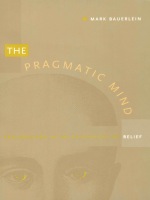
Bauerlein extracts from Emerson, James, and Peirce an intellectual focus that can be used to advance the broad social and academic reforms that the new pragmatists hail. He claims that, in an effort to repudiate the phony universalism of much contemporary theory, the new generation of theorists has ignored the fact that its visions of pragmatic action are grounded in this "old" school, not just in a way of doing things but also in a way of thinking about things. In other words, despite its inclination to regard psychological questions as irrelevant, Bauerlein shows that the pragmatic method demands a pragmatic mind—that is, a concept of cognition, judgment, habit, and belief. He shows that, in fact, such a concept of mind does exist, in the work of the "old" pragmatists.

"It is absolutely the only philosophy with no humbug in it," an exhilarated William James wrote to a friend early in 1907. And later that year, after finishing the proofs of his "little book," he wrote to his brother Henry: "I shouldn't be surprised if ten years hence it should be rated as 'epoch-making,' for of the definitive triumph of that general way of thinking I can entertain no doubt whatever—I believe it to be something quite like the protestant reformation."
Both the acclaim and outcry that greeted Pragmatism: A New Name for Some Old Ways of Thinking helped to affirm James's conviction. For it was in Pragmatism that he confronted older philosophic methods with the "pragmatic" method, demanding that ideas be tested by their relation to life and their effects in experience. James's reasoning and conclusions in Pragmatism have exerted a profound influence on philosophy in this century, and the book remains a landmark.
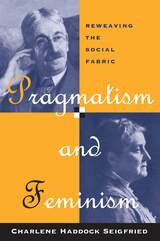
With careful attention to their interwoven histories and contemporary concerns, Pragmatism and Feminism effectively invigorates both traditions, opening them to new interpretations and appropriations and asserting their timely philosophical relevance. This foundational work in feminist theory simultaneously invites and guides future scholarship in an area of rapidly emerging significance.

Pragmatism is the most famous single work of American philosophy. Its sequel, The Meaning of Truth, is its imperative and inevitable companion. The definitive texts of both works are here available for the first time in one volume, with an introduction by the distinguished contemporary philosopher A. J. Ayer.
In Pragmatism, William James attacked the transcendental, rationalist tradition in philosophy and tried to clear the ground for the doctrine he called radical empiricism. When first published, the book caused an uproar. It was greeted with praise, hostility, ridicule. Determined to clarify his views, James collected nine essays he had written on this subject before he wrote Pragmatism and six written later in response to criticisms by Bertrand Russell and others. He published The Meaning of Truth in 1909, the year before his death.
These two works show James at his best full of verve and good humor. Intent upon making difficult ideas clear, he is characteristically vigorous in his effort to make them prevail.
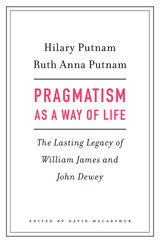
Throughout his diverse and highly influential career, Hilary Putnam was famous for changing his mind. As a pragmatist he treated philosophical “positions” as experiments in deliberate living. His aim was not to fix on one position but to attempt to do justice to the depth and complexity of reality. In this new collection, he and Ruth Anna Putnam argue that key elements of the classical pragmatism of William James and John Dewey provide a framework for the most progressive and forward-looking forms of philosophy in contemporary thought. The Putnams present a compelling defense of the radical originality of the philosophical ideas of James and Dewey and their usefulness in confronting the urgent social, political, and moral problems of the twenty-first century.
Pragmatism as a Way of Life brings together almost all of the Putnams’ pragmatist writings—essays they wrote as individuals and as coauthors. The pragmatism they endorse, though respectful of the sciences, is an open experience-based philosophy of our everyday lives that trenchantly criticizes the fact/value dualism running through contemporary culture. Hilary Putnam argues that all facts are dependent on cognitive values, while Ruth Anna Putnam turns the problem around, illuminating the factual basis of moral principles. Together, they offer a shared vision which, in Hilary’s words, “could serve as a manifesto for what the two of us would like philosophy to look like in the twenty-first century and beyond.”

The publication in 1890 of William James’s acknowledged masterpiece marked a turning point in the development of psychology as a science in America. The Principles of Psychology also became a source of inspiration in philosophy, literature, and the arts. When John Dewey reviewed it, he predicted that it would rank “as a permanent classic, like Locke’s Essay and Hume’s Treatise.”
Its stature undiminished after 91 years, The Principles of Psychology appears now in a new, handsome edition with an authoritative text that corrects the hundreds of errors, some very serious, that have been perpetuated over the years. Prepared according to the modern standards of textual scholarship, this edition incorporates all of the changes James made in the eight printings he supervised, as well as the revisions and new material he added to his own annotated copy. In addition, all footnotes, references, quotations, and translations have been thoroughly checked.
The complete text of the Principles, with footnotes, drawings, and James’s own index, appears in Volumes I and II. Volume III includes extensive notes, appendixes, textual apparatus, and a general index.

The publication in 1890 of William James’s acknowledged masterpiece marked a turning point in the development of psychology as a science in America. The Principles of Psychology also became a source of inspiration in philosophy, literature, and the arts. When John Dewey reviewed it, he predicted that it would rank “as a permanent classic, like Locke’s Essay and Hume’s Treatise.”
Its stature undiminished after 91 years, The Principles of Psychology appears now in a new, handsome edition with an authoritative text that corrects the hundreds of errors, some very serious, that have been perpetuated over the years. Prepared according to the modern standards of textual scholarship, this edition incorporates all of the changes James made in the eight printings he supervised, as well as the revisions and new material he added to his own annotated copy. In addition, all footnotes, references, quotations, and translations have been thoroughly checked.
The complete text of the Principles, with footnotes, drawings, and James’s own index, appears in Volumes I and II. Volume III includes extensive notes, appendixes, textual apparatus, and a general index.

Today's scholars know James's psychology primarily through his great Principles of Psychology (1890), but those who studied the subject at the turn of the century were more apt to learn his view through his Psychology: Briefer Course (1892). Indeed, professors at colleges and universities throughout the United States use this book--which their students labeled "Jimmy" to distinguish it from the larger "James"--in their classes, and more than six times as many copies of the Briefer Course were sold by 1902 as were sets of Principles.
Despite its title, the Briefer Course is more than a simple condensation of the larger work. For example, to the material from Principles James added several chapters on the physiology of the senses that helped mesh his psychology with the other sciences of the period. The earlier chapter title "The Stream of Thought" is replaced here with "The Stream of Consciousness." Psychology: Briefer Course remains a useful and highly readable introduction to James's views on psychology and is an essential source for anyone interested in studying all of his psychological writings.
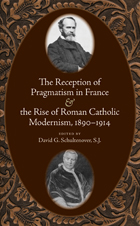

Some Problems of Philosophy, William James's last book, was published after his death in 1910. For years he had talked of rounding out his philosophical work with a treatise on metaphysics. Characteristically, he chose to do so in the form of an introduction to the problems of philosophy, because writing for beginners would force him to be nontechnical and readable. The result is that, although this is James's most systematic and abstract work, it has all the lucidity of his other, more popular writings. Step by step the reader is introduced, through analysis of the fundamental problems of Being, the relation of thoughts to things, novelty, causation, and the Infinite, to the original philosophical synthesis that James called radical empiricism.
This is the seventh volume to be published in The Works of William James, an authoritative edition sponsored by the American Council of Learned Societies.

Despite the modesty of its title, the publication of this book in 1899 was a significant event. It marked the first application of the relatively new discipline of psychology, and specifically of James's theses in The Principles of Psychology, to educational theory and classroom practice. The book went through twelve printings in as many years and has never been out of print. Among its innovative features were James's maxims "No reception without reaction" and "No impression without expression"; a new emphasis on the biology of behavior and on the role of instincts; and discussions of the relevance to elementary school education of what is known about will, attention, memory, apperception, and the association of ideas.
Appended to the fifteen talks to schoolteachers were three talks to college students, as pertinent today as when they were written: "The Gospel of Relaxation," "On a Certain Blindness in Human Beings," and "What Makes a Life Significant?"

This out- of-print classic returns, in a new paperback edition, through the Vanderbilt Library of American Philosophy. Designed to serve as both a systematic account of James's development and a repository of selections from his unpublished writings, the one-volume work (which forms the basis for this new paperback edition) offers a brief and convenient sourcebook of James's thought, set forth in terms that require no previous familiarity with technical problems of philosophy and psychology.


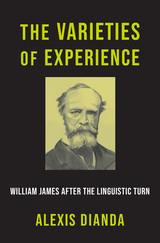
A reclamation of experience as the foremost concept in the work of William James, and a powerful argument for the continuing importance of his philosophy.
How does one deploy experience without succumbing to a foundationalist epistemology or an account of the subject rooted in immediately given objects of consciousness? In the wake of the so-called linguistic turn of the twentieth century, this is a question anyone thinking philosophically about experience must ask.
Alexis Dianda answers through a reading of the pragmatic tradition, culminating in a defense of the role of experience in William James’s thought. Dianda argues that by reconstructing James’s philosophical project, we can locate a model of experience that not only avoids what Wilfrid Sellars called “the myth of the given” but also enriches pragmatism broadly. First, Dianda identifies the motivations for and limitations of linguistic nominalism, insisting that critics of experience focus too narrowly on justification and epistemic practices. Then, by emphasizing how James’s concept of experience stresses the lived, affective, and nondiscursive, the argument holds that a more robust notion of experience is necessary to reflect not just how we know but how we act.
The Varieties of Experience provides a novel reconstruction of the relationship between psychology, moral thought, epistemology, and religion in James’s work, demonstrating its usefulness in tackling issues such as the relevance of perception to knowledge and the possibility of moral change. Against the tide of neopragmatic philosophers such as Richard Rorty and Robert Brandom, who argue that a return to experience must entail appeals to foundationalism or representationalism, Dianda’s intervention rethinks not only the value and role of experience but also the aims and resources of pragmatic philosophy today.
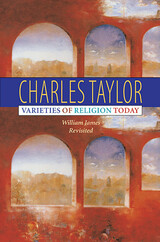
“Varieties of Religion Today is a provocative, witty, and worthy conversation with James’s timeless work.” —Publishers Weekly
A hundred years after William James delivered the celebrated lectures that became The Varieties of Religious Experience, one of the foremost thinkers in the English-speaking world returns to the questions posed in James’s masterpiece to clarify the circumstances and conditions of religion in our day. An elegant mix of the philosophy and sociology of religion, Charles Taylor’s powerful book maintains a clear perspective on James’s work in its historical and cultural contexts, while casting a new and revealing light upon the present.
Lucid, readable, and dense with ideas that promise to transform current debates about religion and secularism, Varieties of Religion Today is much more than a revisiting of James’s classic. Rather, it places James’s analysis of religious experience and the dilemmas of doubt and belief in an unfamiliar but illuminating context, namely the social horizon in which questions of religion come to be presented to individuals in the first place.
Taylor begins with questions about the way in which James conceives his subject, and shows how these questions arise out of different ways of understanding religion that confronted one another in James’s time and continue to do so today. Evaluating James’s treatment of the ethics of belief, he goes on to develop an innovative and provocative reading of the public and cultural conditions in which questions of belief or unbelief are perceived to be individual questions. What emerges is a remarkable and penetrating view of the relation between religion and social order and, ultimately, of what “religion” means.

The Varieties of Religious Experience, first delivered as the Gifford Lectures in Edinburgh, was published in 1902 and quickly established itself as a classic. It ranks with its great predecessor, The Principles of Psychology, as one of William James's masterworks.
The book is not concerned with institutional religion. Its subtitle is "A Study in Human Nature," and James defines his subject as the feelings, acts, and experiences of individuals in relation to what they consider to be divine. His broad topics include the religion of healthy-mindedness; the sick soul; the divided self and its unification; conversion; saintliness; and mysticism. These and other phenomena are vividly documented by individual case histories--recorded in autobiographies, diaries, confessions, and similar writings--drawn from the whole range of world literature.
Constantly reprinted over the years, Varieties here appears for the first time in an edition prepared and annotated according to modern standards of textual scholarship. Manuscript material has been used to recover the form in which the last two lectures were originally delivered.

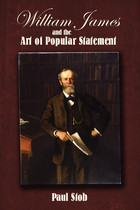
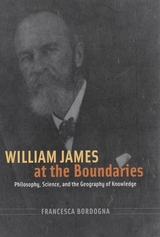
What was the goal of this unusual speech? Rather than an oddity, Francesca Bordogna asserts that the APA address was emblematic—it was just one of many gestures that James employed as he plowed through the barriers between academic, popular, and pseudoscience, as well as the newly emergent borders between the study of philosophy, psychology, and the “science of man.” Bordogna reveals that James’s trespassing of boundaries was an essential element of a broader intellectual and social project. By crisscrossing divides, she argues, James imagined a new social configuration of knowledge, a better society, and a new vision of the human self. As the academy moves toward an increasingly interdisciplinary future, William James at the Boundaries reintroduces readers to a seminal influence on the way knowledge is pursued.
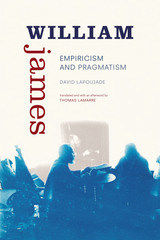
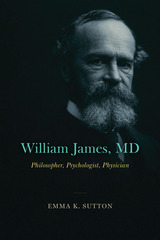
William James is known as a nineteenth-century philosopher, psychologist, and psychical researcher. Less well-known is how his interest in medicine influenced his life and work, driving his ambition to change the way American society conceived of itself in body, mind, and soul. William James, MD offers an account of the development and cultural significance of James’s ideas and works, and establishes, for the first time, the relevance of medical themes to his major lines of thought.
James lived at a time when old assumptions about faith and the moral and religious possibilities for human worth and redemption were increasingly displaced by a concern with the medically “normal” and the perfectibility of the body. Woven into treatises that warned against humanity’s decline, these ideas were part of the eugenics movement and reflected a growing social stigma attached to illness and invalidism, a disturbing intellectual current in which James felt personally implicated. Most chronicles of James’s life have portrayed a distressed young man, who then endured a psychological or spiritual crisis to emerge as a mature thinker who threw off his pallor of mental sickness for good. In contrast, Emma K. Sutton draws on his personal correspondence, unpublished notebooks, and diaries to show that James considered himself a genuine invalid to the end of his days. Sutton makes the compelling case that his philosophizing was not an abstract occupation but an impassioned response to his own life experiences and challenges. To ignore the medical James is to misread James altogether.

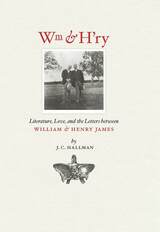
William and Henry James served as each other’s muse and critic. For instance, the event of the death of Mrs. Sands illustrates what H’ry never stated: even if the “matter” of his fiction was light, the minds behind it lived and died as though it was very heavy indeed. He seemed to best understand this himself only after Wm fully fleshed out his system. “I can’t now explain save by the very fact of the spell itself . . . that [Pragmatism] cast upon me,” H’ry wrote in 1907. “All my life I have . . . unconsciously pragmatised.”
Wm was never able to be quite so gracious in return. In 1868, he lashed out at the “every day” elements of two of H’ry’s early stories, and then explained: “I have uttered this long rigmarole in a dogmatic manner, as one speaks, to himself, but of course you will use it merely as a mass to react against in your own way, so that it may serve you some good purpose.” He believed he was doing H’ry a service as he criticized a growing tendency toward “over-refinement” or “curliness” of style. “I think it ought to be of use to you,” he wrote in 1872, “to have any detailed criticism fm even a wrong judge, and you don’t get much fm. any one else.” For the most part, H’ry agreed. “I hope you will continue to give me, when you can, your free impression of my performance. It is a great thing to have some one write to one of one’s things as if one were a 3d person & you are the only individual who will do this.”
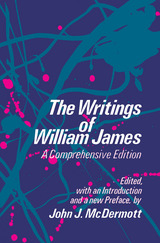
The anthology features representive selections from The Principles of Psychology, The Will to Believe, and The Variety of Religious Experience in addition to the complete Essays in Radical Empiricism and A Pluralistic Universe. The original 1907 edition of Pragmatism is included, as well as classic selections from all of James's other major works. Of particular significance for James scholarship is the supplemented version of Ralph Barton Perry's Annotated Bibliography of the Writings of William James, with additions bringing it up to 1976.
READERS
Browse our collection.
PUBLISHERS
See BiblioVault's publisher services.
STUDENT SERVICES
Files for college accessibility offices.
UChicago Accessibility Resources
home | accessibility | search | about | contact us
BiblioVault ® 2001 - 2025
The University of Chicago Press



